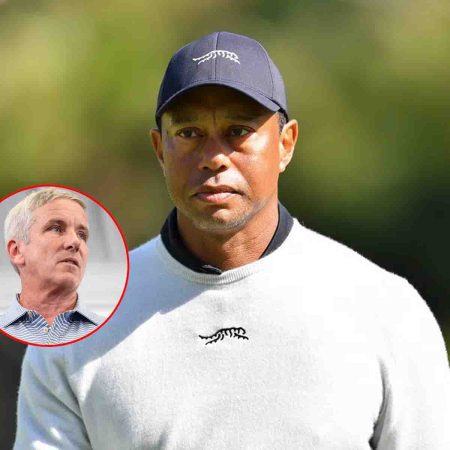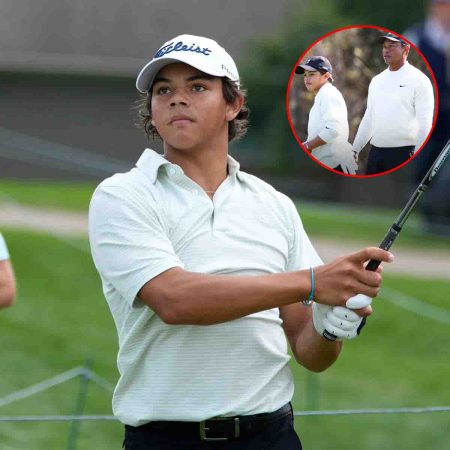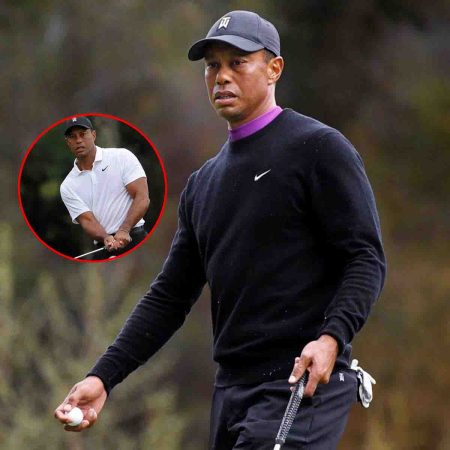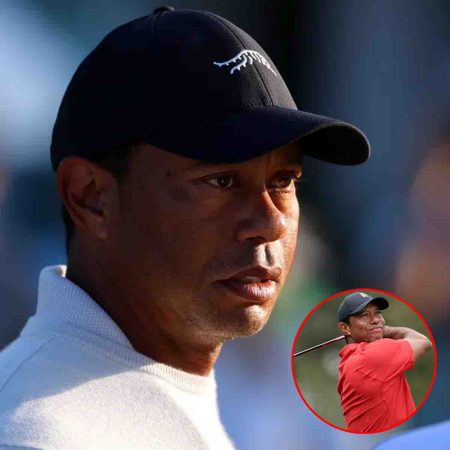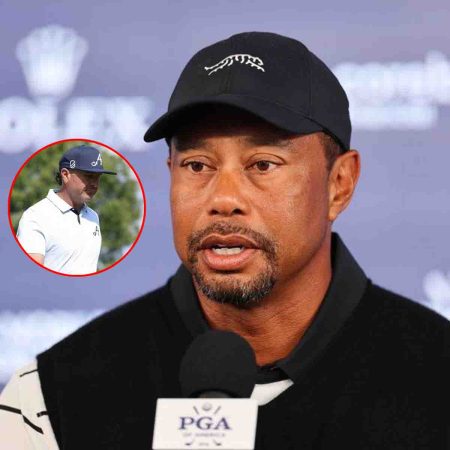One of the more eye-catching aspects of Erik ten Hag’s first year at Manchester United has been his problem-solving on the go by tactically re-profiling his players.
If management is like trying to build an aircraft while flying, then Ten Hag has spent parts of this season not sitting in the cockpit but on the fuselage, trying to craft the landing gear into a propeller.
Defender Luke Shaw’s left-footedness has been used to maintain balance in the centre of defence. Wout Weghorst’s ability to drop and link play briefly brought something different to the No 10 role. Jadon Sancho’s reintegration was helped by moving inside into the same position so that he was surrounded by more team-mates.
However, one of the most interesting re-deployments of all has been the shifting around of Bruno Fernandes, a player who has always had a strong claim to being United’s most important and influential play-maker, wherever he is on the pitch.
At the turn of the year, Fernandes started appearing on the right wing. More recently, during the enforced absences of Christian Eriksen (due to an ankle injury) and Casemiro (due to a four-game domestic suspension), Fernandes has enjoyed a recent spell in central midfield.
His performances from this deeper position have been met by rave reviews — not least from the United manager himself.
“When you miss (Eriksen and Casemiro), you have to find a solution to bring up from the back, to get the build-up in, to progress the ball and to attack,” Ten Hag said after last weekend’s 2-0 win over Everton. “We found the idea to bring Bruno down more deeper and he is doing brilliant. I think he is playing really good games.”
It is all quite reminiscent of the time under Ole Gunnar Solskjaer when Fernandes was the main conduit for a lot of United’s passages of play, whereas previously under Ten Hag, his influence had been diluted.
Bruno Fernandes’ declining involvementSeason Passes received (p90) Touches (p90)
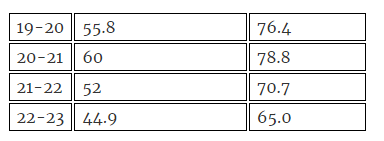
The shift in position has restored Fernandes’s traditional status as United’s most influential player. That was most certainly the case against Everton.
Fernandes was named man of the match after completing 90 passes — the most of any player on the pitch — just a few days after completing 85 passes in the win against Brentford on April 5. The most Fernandes had completed in one game this season, prior to that, was 66 against Tottenham, back in October.
The 28-year-old also received the ball more and took more touches than he has in any game this season. His orchestration of play from the base of midfield last Saturday was impressive enough for him to receive standing ovations from Old Trafford’s Scoreboard End as he took two late corners.
But, like many of the other positive aspects of United’s performance that day, it was hard to separate Fernandes’s display from how poor Everton were — specifically how little they attempted to press him when he was on the ball and how badly organised they were to defend against his play-making ability.
For example, Fernandes’s first eye-catching pass of the day — a long ball out to the right flank to set Antony away after Ben Godfrey missed a header.
As Fernandes received the ball deep and looked up for the pass, Alex Iwobi made little effort to close him down while the rest of Everton’s midfield had pushed extremely high up, leaving ample space for United to spring a counter-attack.

The same happened again a few minutes later, only with even less pressure being applied to Fernandes and an even more disorganised Everton defensive shape ahead of him.

Fernandes has the freedom to pick his spot, to make the most of the confusion between Michael Keane and Seamus Coleman, and to put Marcus Rashford through on goal, one-on-one.
It was a similar tale against Brentford too. Thomas Frank’s side, who happen to have the fourth-fewest high turnovers in the top flight this season, were largely happy to sit off United and, in turn, Fernandes. Ivan Toney watched on as this long, raking pass was sent up the pitch just after the half-hour mark.

But Brentford were far more successful at limiting the damage Fernandes’s long-range passing can do, partly because they are a much more organised side than Everton. Frank’s side sat deeper and compressed the space, kept track of runners, and an overhit pass was easily collected by David Raya.
When Brentford did get close to Fernandes, they were able to scramble his radar. At the start of the second half, Mikkel Damsgaard was quick to hunt Fernandes down and narrow the angle, forcing him to play another searching long ball. The pass was overhit, eluding Antony and running out for a throw-in.

Fernandes’s style of low-percentage, ambitious passing, and quick but erratic decision-making has never made him especially press-resistant and that is the biggest barrier to his long-term redeployment as a deeper-lying play-maker.
For all the positives against Everton, Fernandes’s spell in central midfield has coincided with a somewhat indifferent set of United performances and it was only recently that Newcastle United tore through a Ten Hag midfield.
Fernandes generally took up more advanced positions at St James’ Park, roaming forward with Scott McTominay while Marcel Sabitzer sat deep in one of Ten Hag’s more curious midfield set-ups of the season.
Newcastle have become renowned as one of the better pressing units in the Premier League and whenever they turned over possession and broke through United’s disjointed midfield, they had all the space they needed to dominate.
One of the most blatant examples came not long after Joe Willock’s breakthrough, with Fernandes on the halfway line, facing his own goal. Bruno Guimaraes came up from behind, picked his pocket, and sprang a counter-attack that left United vulnerable.


Moments like that have pockmarked Fernandes’ cameos in midfield, counter-balancing his creativity from deep and greater involvement in United’s attacking play. Yet Ten Hag appears to have concluded, for now, that the reward is greater than the risk.
Despite Eriksen’s availability and with the added protection from the returning Casemiro, Fernandes retained his place in a deeper role on Thursday night against Sevilla, assisting Sabitzer for the opener.
Again, Fernandes was under relatively little pressure when playing the killer ball, with Sevilla standing off as he threaded his pass through their deep-set defence.

Despite coming off after an hour, he was highly involved. Fernandes averaged a little less than touch every minute, the most of any United player, while regularly rotating positions and popping up where you might expect to see a left-back.
There were, however, other occasions where pressure by Sevilla led to Fernandes losing possession.
Just before the half-hour mark, Ivan Rakitic only needed to block off Fernandes’s most obvious passing lane to get a toe on the ball and divert it into Nemanja Gudelj. In keeping with their lethargic first-half display, Sevilla struggled to make the most of the subsequent opportunity to counter-attack.

And shortly before coming off, an ill-advised turn and spin by Fernandes past Marcos Acuna while attempting to hit Sevilla on the break instead gave the ball straight to Fernando, keeping the pressure on United.


Of course, it would be harsh to expect Fernandes to complete every pass under pressure — even harsher than the booking he received for handball that means he will be suspended for the second leg at the Ramon Sanchez Pizjuan.
But from the FA Cup semi-final against Brighton onwards, after months of mending and making do in midfield, Ten Hag could finally have a selection headache. Is this Fernandes experiment worth persisting with?
That will depend on who and what United are up against. If United can expect time on the ball in their own half and — even better — an almost criminal amount of space in behind to break into, his creativity from deep becomes a potential match-winning asset.
If not, and particularly when up against elite, high-pressing opponents, Fernandes’ ambitious passing and lack of press resistance risks losing the ball in a dangerous area of the pitch.
It becomes a case of weighing up the pros and cons. Fernandes has proved himself capable from deep but in certain games, another solution may be needed. At least, in this season full of tactical reshuffles and redeployments, Ten Hag has shown he is capable of finding them.



